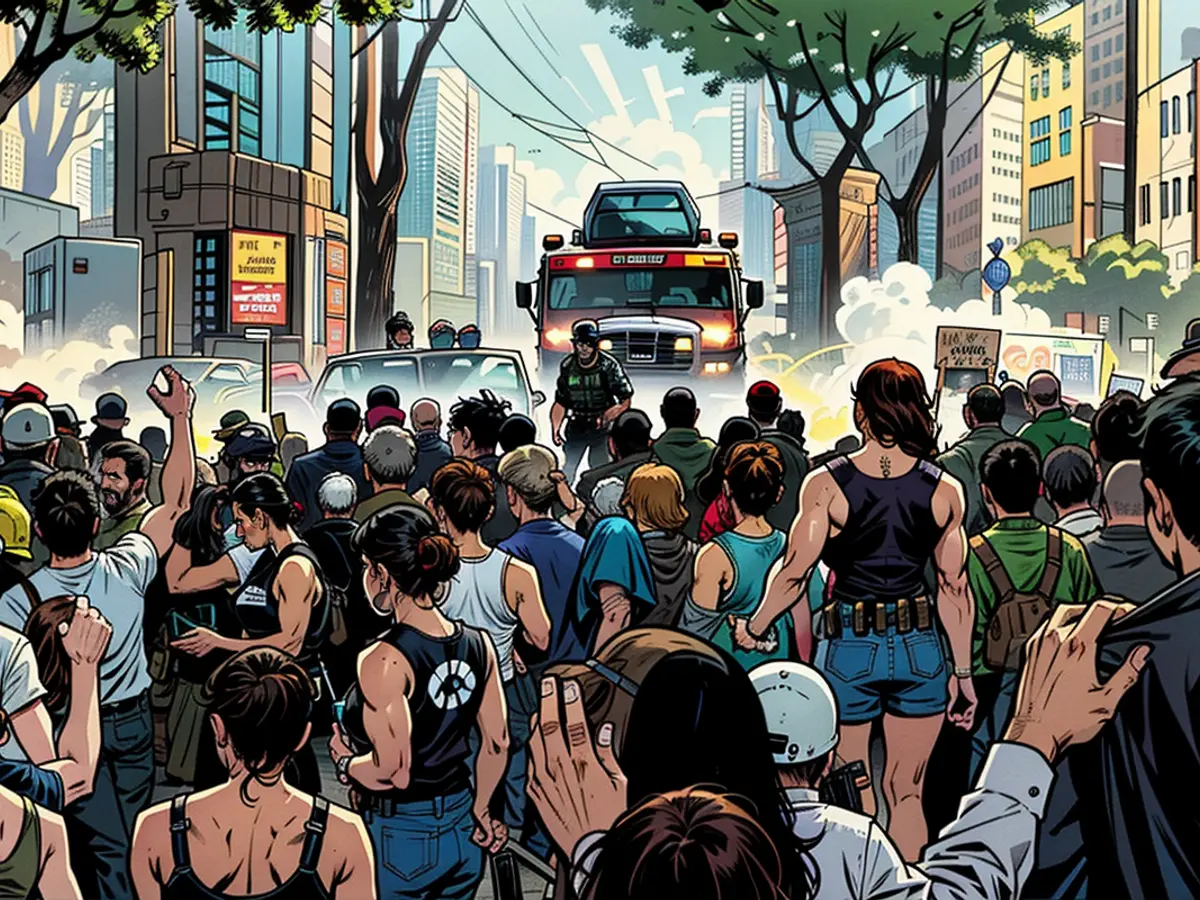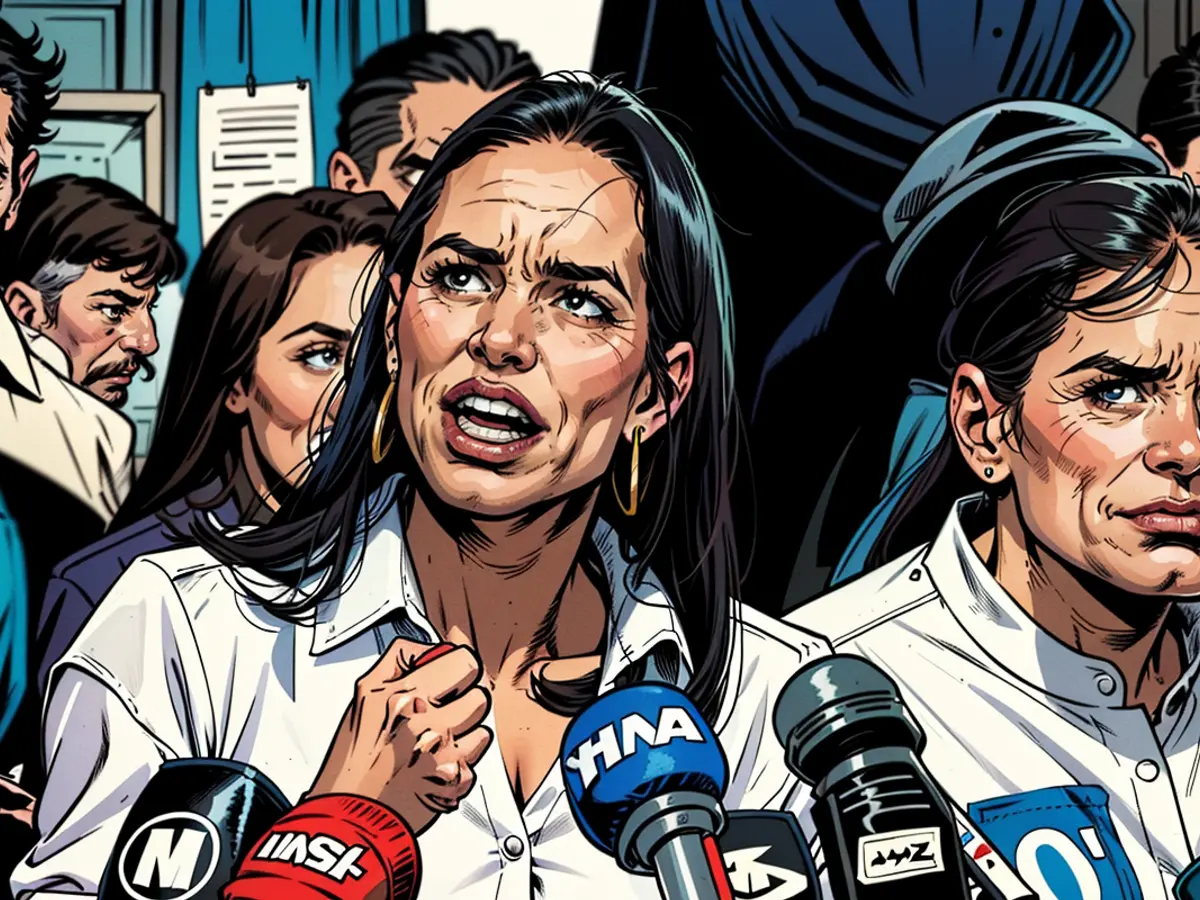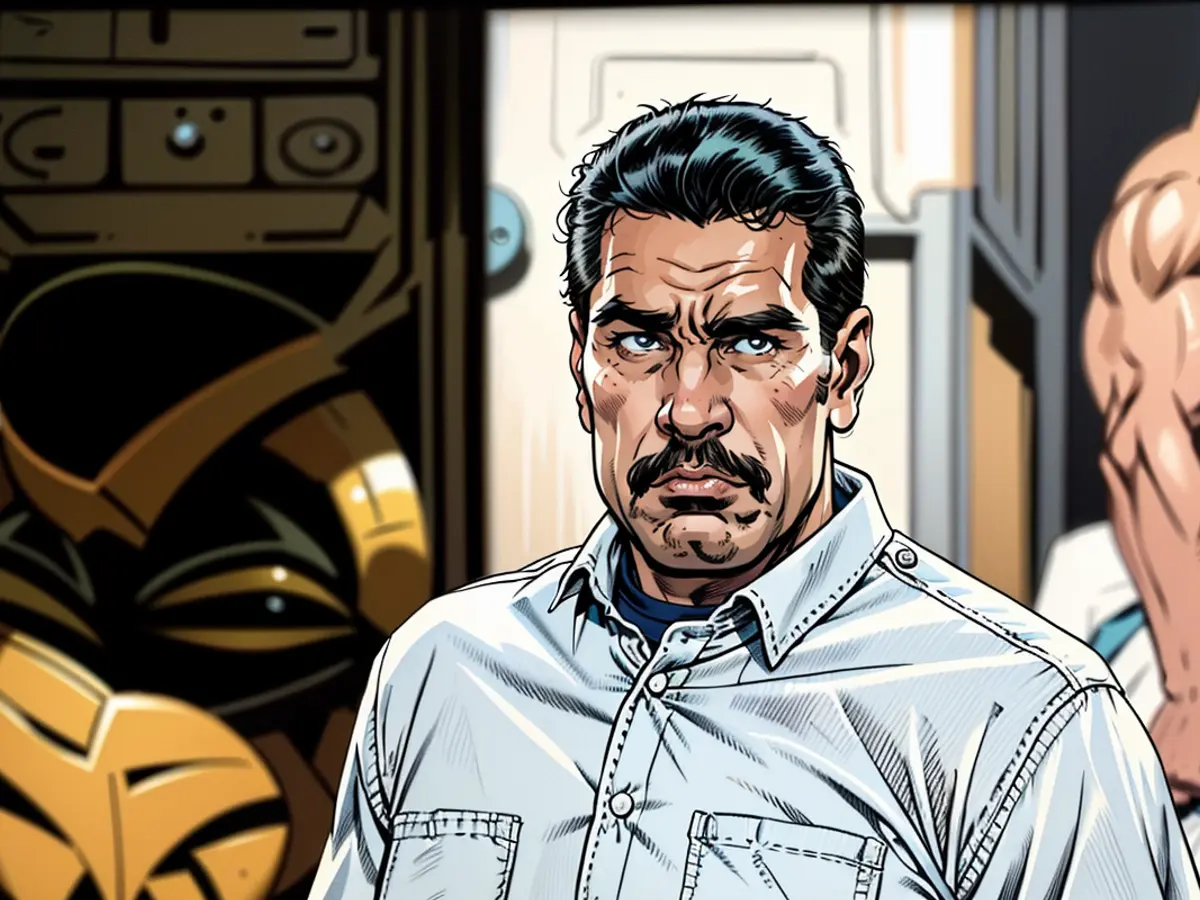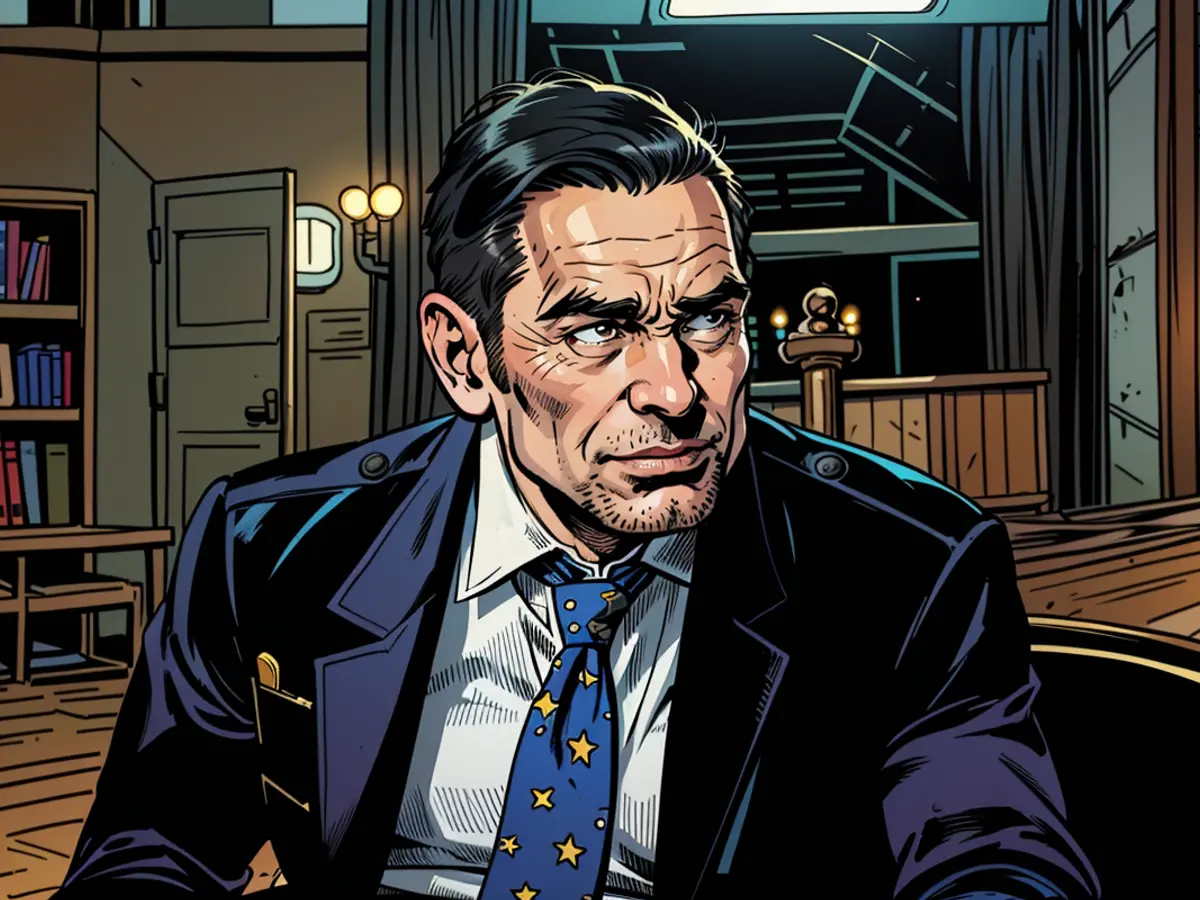Venezuela's opposition head voices his harrowing experiences in Caracas' final days prior to his relocation to Spain.
In his initial television appearance post-Venezuela, Edmundo González Urrutia explained the part Spanish authorities played in his departure from the turbulent Latin American nation. The ex-diplomat further expressed his belief in being more beneficial outside the country, as a free individual unconfined and not detained, to handle Venezuela's political instability.
Venezuela has been in political turmoil since the July presidential election, where self-proclaimed authoritarian leader Nicolas Maduro was proclaimed victor by the nation's electoral body stacked with his allies, obtaining 51% of the vote. However, over 10,000 ballot counts disclosed by the opposition suggested a triumph for González. Venezuela's opposition and numerous Latin American leaders refused to acknowledge Maduro's victory, resulting in deadly clashes in which thousands were apprehended.
‘I hid in the Dutch embassy for thirty-two days’
González narrated his days leading up to his flight from Venezuela. Initially, he sought refuge in the Dutch embassy due to three summonses from the Venezuelan Public Ministry and an arrest warrant. He claimed to have remained unnoticed in the embassy for 32 days.
Later, he decided to seek asylum in Spain, a sympathetic country, along with his wife and team, after spending two days at the Spanish ambassador's residence in Caracas. Following his departure, González disclosed the document he signed at the Spanish embassy, which initially remained confidential but was eventually revealed by the Spanish authorities.
The document in question acknowledged the verdict of the Venezuelan Electoral Chamber of the Supreme Court of Justice, which verified President Maduro's victory in the July 28 elections. The Venezuelan government has yet to furnish detailed voting center or “table” results to back their announcement.
On social media, González disclosed that he signed the document after enduring several hours of force, coercion, and pressure in the presence of Venezuela's Vice President Delcy Rodríguez and her brother Jorge Rodríguez, head of the National Assembly.
“I had to negotiate with the regime’s envoys” to leave the nation, González conceded. “The weakest in legal terms was I: I had to either sign the document or remain in the country.”
Venezuela's National Assembly president, Jorge Rodríguez, offered a different account of the events. On September 18, he asserted during a press conference that they had not coerced González and that he had voluntarily reached out to the government.
González maintains that he did not specifically request Delcy and Jorge Rodríguez's presence at the meeting.
In that September press conference, the head of Venezuela's Parliament displayed several photographs of the meeting with González. According to González, the images were taken without the embassy's host's approval.
González described his final hours in Venezuela as quite tense as he faced the prospect of leaving the country with his wife or remaining at the embassy indefinitely.

At the airport, he simply waited to board the plane to conclude this ordeal.
Would Maria Corina Machado enter exile? González hopes not
González expressed that his decision to depart was a personal matter that required discretion, and he informed Maria Corina Machado, who supported his campaign, only two days prior to his departure.
González explained his reasoning to her, and she agreed. He mentioned maintaining constant communication with Machado and having a close relationship with her.
This Wednesday, Machado refuted claims of exile, made by Maduro.
“Venezuelans are aware I am still in Venezuela, and so are the people, as well as Maduro himself, but they are desperate to know my whereabouts, and I will not give them that satisfaction,” she said to Florida's EVTV network.
Would exile be Machado's fate? “I hope not,” replied González, adding that he had not discussed this hypothetical scenario with her.
The Spanish government's role
Spain's Ministry of Foreign Affairs clarified in September that “the Spanish government has no involvement with any document or negotiations between Edmundo González and the Venezuelan government.”
This week, CNN approached Cristina Narbona, president of the Spanish Socialist Workers' Party (PSOE), about Delcy Rodríguez's visit to Spain in 2020, which is still under investigation by the Spanish Civil Guard four years later.
Narbona acknowledged that the vice president had briefly stopped at Barajas Airport in Madrid but had no further information.

For Narbona, the political asylum granted by Spain to González benefited him, as he resided under threat and sought to leave Venezuela. Spanish opposition parties, like the conservative Popular Party [PP] and the far-right Vox, accused the Spanish government of assisting Maduro's regime through González's asylum.
“I found myself in the middle of Spain's two major political parties' feud,” González said, adding that the Spanish government had supplied him with all the facilities required during his exile.
On the 18th of September, the Spanish Senate, with a majority vote, endorsed a proposal from the Popular Party, urging the Spanish administration to acknowledge Gonzalez as the legitimately chosen president of Venezuela.
The former diplomat expressed uncertainty about whether Spanish Prime Minister Sánchez was serving as a mediator between the government of Maduro and his regime. He emphasized his belief in dialog as a means to tackle political conflicts and commended the "significant initiative" of the Colombian and Brazilian governments in working towards a resolution.
Gonzalez's Ambition: January 10
Gonzalez revealed that he and the exiled opposition are making efforts to honor the protest of "almost 8 million" voters, desiring a peaceful transition. The ambition, according to him, is to be physically present in Venezuela for the inauguration on January 10th.
The Venezuelan National Electoral Council (CNE), under Chavismo's control, declared Maduro as the winner with 51.95% of the votes, while Gonzalez garnered 43.18%. Despite the proclamation, the international community has voiced concerns over the absence of transparency in the results.
The opposition claims to have obtained 83.5% of the records through their electoral observers on voting day. Analysts consulted by CNN en Español have affirmed that these numbers align mathematically and statistically.
Gonzalez contends that "there is no evidence to substantiate their [Maduro's regime's] victory."
The opposition nominee disclosed that an exile inauguration has not been entertained as an option. Simultaneously, he admitted that the possibility of missing the January 10th date is an unconsidered scenario, but he approaches it with "composure and a fresh perspective."
José Álvarez, Osmary Hernández, Veronica Calderón, and Mauricio Torres from CNN en Español contributed to this report.

González expressed his belief that he could contribute more to resolving Venezuela's political issues from a free and unconfined position in the 'Americas'. The situation in Venezuela has garnered global attention, with leaders and individuals from around the 'world' expressing their concerns and support for a peaceful resolution.







